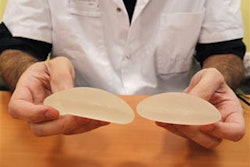HARTFORD, Conn. (AP) — With the right investments and optimistic mindset, Connecticut could transform itself into the Silicon Valley of medical, engineering and science research advancements, the president of the state's flagship university said Friday.
University of Connecticut President Susan Herbst urged hundreds of business leaders at a conference Friday to consider that California-based technology hub and North Carolina's academia-driven Research Triangle as examples of how a region can gain a worldwide reputation by developing expertise on emerging technologies.
Her comments came one day after Connecticut formalized its plans with The Jackson Laboratory of Bar Harbor, Maine, to build a bioscience research facility at the UConn Health Center in Farmington, where enrollment will also be expanded in UConn's medical and dental schools.
The state is also building a technology park at UConn's Storrs campus to encourage public-private partnerships in engineering and related research, and to offer support and space to entrepreneurs to launch new high-tech businesses — similar to some services in the Research Triangle that links universities and industries in Raleigh, Durham and Chapel Hill, N.C.
"A Connecticut research and innovation triangle linking Farmington, Storrs and New Haven has a similar kind of promise," Herbst said Friday in Hartford, where she gave the opening keynote address at the Economic Summit & Outlook 2012 conference of the Connecticut Business & Industry Association and the MetroHartford Alliance.
Although Herbst's comments were met by a friendly and receptive crowd, many of those who've been in Connecticut for decades say their hopes have been raised and dashed by various ideas that never got off the ground in past decades.
Frank Donovan, who is chairman of a group of retired General Electric Co. executives, said that company was long interested in research partnerships, but that its proposals to state officials over the years were greeted with what he called "a lack of vision, a lack of leadership."
"Connecticut has blown some great opportunities in the past. What makes you think it's going to be different in the future?" Donovan asked Herbst, prompting a round of knowing laughter in the room Friday.
Herbst, a New York native who came to Connecticut last year from Georgia, said she believes Bioscience Connecticut and the Storrs technology park will break that pattern because Gov. Dannel P. Malloy has invested money, time and personal pride in ensuring they don't fall to the wayside.
"You get the right people in the right places and they can do it," Herbst said. "We're beyond hopeful. We're energized and we're dreaming big, and he's been a real inspiration to us."
Jackson Lab's major focus at the UConn Health Center will be in personalized medicine, which involves determining a person's genetic makeup to help tailor care and determine the most effective treatments for cancer and other illnesses.
Connecticut officials have said Jackson's expansion will create 661 new research jobs, nearly 850 construction jobs and almost 6,900 long-term direct and indirect jobs over the next 20 years.
Officials at colleges and universities throughout Connecticut say the beneficiaries won't be only UConn researchers and staff. Graduates from community colleges and smaller institutions will be poised to compete for the lab jobs, nursing positions, administrative spots and other jobs created, they said.
"We have folks who are ready to go right in and do these jobs," said Wilfredo Nieves, president of Capital Community College in Hartford, which recently graduated more than 100 nursing students, and which has longtime partnerships with United Healthcare and The Travelers Cos. for mentoring and interning positions.


















